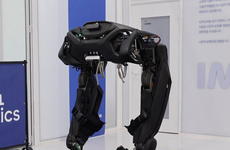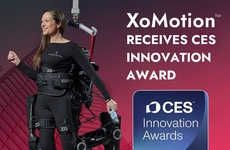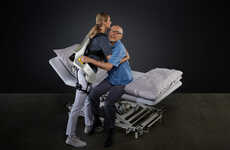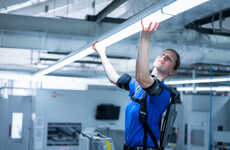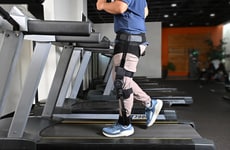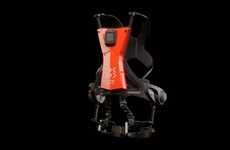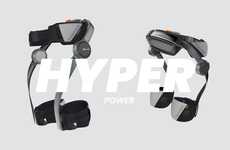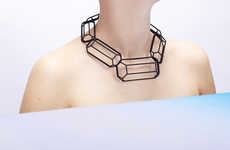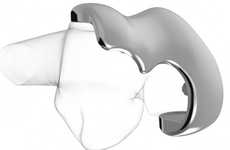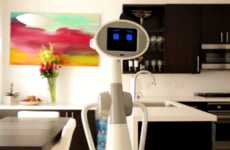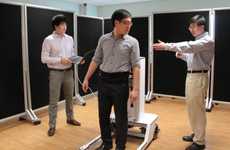
The ReWalk Exoskeleton is a Recently FDA-Approved Suit for the Disabled
Alyson Wyers — July 3, 2014 — World
The FDA recently approved the first exoskeleton for the disabled -- the ReWalk Exoskeleton. From Argo Medical Technologies, this invention's approval by the United States Food and Drug Administration was announced on June 26th.
Based on the work of Dr. Amit Goffer, himself a quadriplegic, the ReWalk Exoskeleton uses a computer control system backpack and a fitted brace to simulate walking legs. This is ideal for people with injured spinal cords or who are paralyzed from the waist down. Joint movement is created by battery-powered motors while a wrist-worn remote control lets the user command the suit's motions. In addition to crutches for safety, the suit also has tilt sensors to feel when the body is moving forward to take steps.
Based on the work of Dr. Amit Goffer, himself a quadriplegic, the ReWalk Exoskeleton uses a computer control system backpack and a fitted brace to simulate walking legs. This is ideal for people with injured spinal cords or who are paralyzed from the waist down. Joint movement is created by battery-powered motors while a wrist-worn remote control lets the user command the suit's motions. In addition to crutches for safety, the suit also has tilt sensors to feel when the body is moving forward to take steps.
Trend Themes
1. Exoskeleton Mobility Technology - The development of exoskeletons for mobility-impaired individuals provides opportunities for technological advancements in the healthcare industry.
2. Remote-controlled Wearable Devices - The integration of remote-controlled wearable devices to assist individuals with physical disabilities presents new possibilities for the wearable technology industry.
3. Robotic Rehabilitation Solutions - The use of robotic technology in rehabilitation solutions for mobility-altering injuries and disabilities poses innovative solutions for the healthcare and robotics industries.
Industry Implications
1. Healthcare Industry - The application of exoskeleton technology to improve mobility for people with physical disabilities expands opportunities for the healthcare industry to advance its medical innovations.
2. Wearable Technology Industry - The integration of remote-controlled wearable exoskeleton devices creates opportunities for the wearable technology industry to develop innovative mobility-focused solutions.
3. Robotics Industry - The development of robotic rehabilitation solutions for mobility-altering injuries and disabilities presents opportunities for the robotics industry to expand into the medical field.
3.2
Score
Popularity
Activity
Freshness

